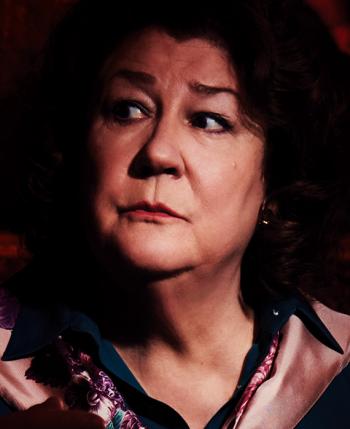By Thomas McCloskey
During the Cold War, President Truman repeatedly referred to “Soviet Savagery,” a metaphor that Robert Ivie argues made it impossible for Americans in the post-war era to construct an image of Russians as anything other than the enemy. [1] At the core of such portrayals is a lack of understanding on the part of western audiences about a central component of Russian identity: the collective memory of World War II. “The Great Patriotic War” was a defining event for the former Soviet Union; 26 million Russians died during the campaign, and the survivors often struggled to justify the trauma they had collectively endured. Depictions of Russians as western adversaries in American popular culture contribute to this lack of understanding by mostly ignoring the narratives of Russian veterans. It is in this context that we might view the recently concluded and wildly popular FX series, “The Americans,” a series that broadens our understanding of Russian people while simultaneously challenging our ideas about PTSD and trauma.
 “The Americans” offers a significant argument for bridging divisions between western and Russian audiences in its portrayal of “Claudia,” a KGB officer and Stalingrad siege survivor. Played by actress Margo Martindale, Claudia repeatedly justifies her frequently brutal actions with narratives of war and survival.[2] Claudia’s very identity is defined by the trauma she experienced in a war 25 years in the past, and she rhetorically frames her efforts to protect the Soviet Union as the natural extension of that conflict. Claudia’s PTSD is so totalizing that, for her, “The Great Patriotic War” never stopped, and her present and past are permanently linked.
“The Americans” offers a significant argument for bridging divisions between western and Russian audiences in its portrayal of “Claudia,” a KGB officer and Stalingrad siege survivor. Played by actress Margo Martindale, Claudia repeatedly justifies her frequently brutal actions with narratives of war and survival.[2] Claudia’s very identity is defined by the trauma she experienced in a war 25 years in the past, and she rhetorically frames her efforts to protect the Soviet Union as the natural extension of that conflict. Claudia’s PTSD is so totalizing that, for her, “The Great Patriotic War” never stopped, and her present and past are permanently linked.
We can think of Claudia as existing in a liminal state, a middle period between sickness and return to health. Cultural anthropologist Victor Turner explores liminality in the context of a transition rite, a process individuals undergo when they transition from health to illness and back to health again. Turner names three stages of the transition rite: separation, the limen, and, finally, aggregation, or a return to health.[3] The separation and reintegration phases correspond clearly with restitution narrative stages of illness and a return to health. However, “during the intervening liminal period, the state of the ritual subject (the ‘passenger,’ or ‘liminar,’) becomes ambiguous, neither here nor there, betwixt and between all fixed points of classification; he passes through a symbolic domain that has one or none of the attributes of his past or coming state.”[4] For Turner, the limen is a middle-area, a temporary passageway toward a return to health.
While Turner’s liminal space is a fundamentally transitory concept, the depictions of Claudia on “The Americans” suggest that for some veterans suffering from PTSD, in both the former Soviet Union and elsewhere, such liminalities can be much more permanent, defining features of identity. For Claudia, a return to mental health is not only impossible, but undesirable—her trauma defines her and motivates collective, productive action in the name of Soviet nationalism. Her dependence on past trauma to motivate future choices make this liminal state a permanent, even positive, space.[5] Claudia responds to trauma in unconventional ways, making her PTSD a positive space. “The Americans” challenges traditional assumptions of PTSD and trauma for war veterans while stretching understandings of liminality and of the Russian people.
Fans of the show have much to appreciate in the current political climate. The appeal of “The Americans” for western audiences might be that its narratives so closely resemble the policies of the Russian Federation’s current leaders. President Putin has a long history of Neo-Soviet actions.[6] Under Putin’s leadership, polls indicate that Joseph Stalin’s popularity has risen sharply among Russians, to 46 percent.[7] President Putin has expressed openness to renaming Volgograd its original “Great Patriotic War” name, “Stalingrad,” in honor of those who fought and died there; “Claudia” would presumably approve of the change.[8] Understanding these characters might also illuminate the actions and rhetoric of the Russian Federation’s current government. If the characters on “The Americans” cannot move forward without relating to trauma, then this implication is troubling for Russia’s current leadership, demanding a rhetorical path forward, both for the fictional spies and actual Russians who are still dealing with the trauma of the Soviet past.
[1] Robert Ivie, “Metaphor and the rhetorical invention of cold war ‘idealists,’” Communication Monographs 54, no. 2 (1987): 165-182.
[2] Martindale earned two Emmy awards for her portrayal of “Claudia” on The Americans.
[3] Turner, Victor, Roger D. Abrahams, and Alfred Harris. The ritual process: Structure and anti-structure (New York: Routledge, 2017), 94.
[4] Victor Turner, From ritual to theatre: The human seriousness of play (Paj Publications, 1982), 232.
[5] Turner’s notion of the transitory nature of liminality have been challenged by other scholars, though other research stops short of suggesting that the limen could be a positive, productive space for veterans. See: Rich, Marc D., and Karen Rasmussen. “Covenants, Liminality, and Transformations: The Communicative Import of our Narratives.” American Communication Journal 6, no. 1 (2002).
[6] A detailed account of all the ways in which President Putin has acted in ways reminiscent of the former Soviet Union’s leaders is a task beyond the current essay. Please see the following for more details:
Masha Gessen. The man without a face: the unlikely rise of Vladimir Putin. Granta Books, 2012.
Soldatov, Andrei and Irina Borogan. The new nobility: the restoration of Russia's security state and the enduring legacy of the KGB. Public Affairs, 2011.
David Hoffman. The oligarchs: Wealth and power in the new Russia. Public Affairs, 2003.
[7] Eva Hoffman, “Stalin’s Approval Rating at Highest Level in 16 Years,” Russia Beyond, 17 February 2017.
[8] The name was last changed by Soviet Premiere Nikita Khrushchev in 1962, during his de-Stalinization campaign. Adam Taylor, “Call for a return to ‘Stalingrad’ name test the limits of Putin’s Soviet nostalgia,” The Washington Post, 9 June 2014. https://www.washingtonpost.com/news/worldviews/wp/2014/06/09/calls-for-a...
About the Author:
 Thomas McCloskey received his Ph.D. in Communication from the University of Maryland in 2017. His research focuses on the rhetoric of nationalism in the former Soviet Union.
Thomas McCloskey received his Ph.D. in Communication from the University of Maryland in 2017. His research focuses on the rhetoric of nationalism in the former Soviet Union.
